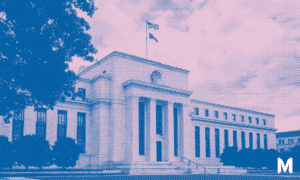End of June, Nic Carter faced an angry crowd of bitcoin maximalists on Twitter after he posted the following Tweet:
According to Nic’s own accounts, many in the bitcoin community had falsely assumed he was a “bitcoin maximalist” when in reality his venture capital firm invests in a range of companies, including bitcoin-only and non-bitcoin projects.
After facing a shit storm on Twitter, he hosted a three hour Twitter Spaces and wrote a detailed blog post distancing himself from bitcoin maximalism and even calling it a cult.
Ever since then, there has been confusion surrounding bitcoin maximalism on Twitter.
Just recently, Bitcoin Core developer Matt Corallo posted a Twitter thread explaining why he believed “Bitcoin maxis are a dying breed”.
He mentioned:
Several people quoted Matt and called him out for attacking bitcoin maximalism without knowing his background as a Bitcoin Core developer, later apologizing for it.
Nic Carter joined the conversation tweeting the following:
This prompted a reply from Luke Dashjr, another Bitcoin Core developer who said the following:
What appears to be happening on Twitter is a sort of confusion about what bitcoin maximalism is in the first place, and secondly, whether it is dying or growing and thirdly whether it is positive or negative.
There seems to be little consensus about what bitcoin maximalism actually is.
For some, proof-of-work mining combined with the difficulty adjustment and timechains are the true innovation. They view bitcoin as the only decentralized, commodity-like money that has the ability to separate money and state.
These maximalists are simply not interested in anything else than bitcoin. They don’t believe altcoins solve any significant problem. At least not a problem as big as bitcoin, from a historic and monetary perspective.
From an investing perspective, bitcoin maximalists might view bitcoin as the only asset they’re comfortable holding since it possesses the best asymmetric risk/reward properties.
Then there are toxic maximalists that like to shitpost on Twitter, call all altcoins scams and view themselves as “bitcoin’s immune system”. Some of these are well-known personalities like Max Keiser, Cory Klippsten, Samson Mow, Pierre Rochard and others.
And then there are countless “anons” that post memes online, shitpost on Twitter and attack anyone and everything that says something against bitcoin or “shills” altcoins.
No matter how you define bitcoin maximalism, there is a noticeable shift in conversation happening about maximalism on Twitter. Some are calling it bitcoin maximalism FUD or an outright attack on bitcoin.
Others are simply distancing themselves from the entire drama surrounding the “bitcoin maximalist” label because it is becoming too uncomfortable, toxic or cult-like for them.
Ultimately, everyone has to answer for themselves:
- What bitcoin maximalism is
- Whether bitcoin maximalism is growing or dying
- Whether bitcoin maximalism is a net positive or negative for bitcoin
The opinions are definitely split about all these three questions. The current conversation on Twitter is clearly revealing that.




